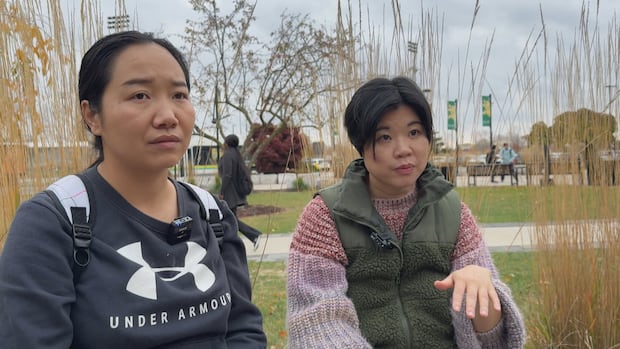Education
St. Clair College Students Demand Changes to $800 Bus Pass System

Students at St. Clair College are advocating for changes to the college’s bus pass system after a significant increase in costs. The price of the bus pass surged to more than $800 this year, up from approximately $300 the previous year. Many students claim they should have the option to opt out of purchasing the pass if they do not utilize the service.
Yechun Zhu, a second-year international student, voiced her frustration after being compelled to pay for the bus pass despite not using it. Zhu lives a mere seven-minute walk from the nearest bus stop and can cycle to campus faster than waiting for a bus. She submitted an application to opt out of the bus pass but was informed that her request was denied due to the existing criteria set by the college.
The Saints Pass program, managed by the college’s Student Representative Council (SRC), allows students to opt out only if they either live outside the service area of Transit Windsor or have purchased a campus parking pass. Zhu noted that while the application form mentioned that other reasons could be considered, her request was ultimately rejected.
“They said, first of all, 40 percent has been reached. So you’re out of luck,” Zhu explained, referring to the cap on the number of students allowed to opt out. A small petition is currently circulating among students who share similar concerns, including first-year student Lulu Bai, who hopes the college will reconsider its policies.
The increase in the bus pass cost was ratified by students in a referendum held in February 2023. The then-president of the SRC stated that the rise was based on a proposal from Transit Windsor, which prompted the SRC to seek student input due to its substantial nature.
According to the SRC, the contract stipulates that a maximum of 40 percent of students can opt out of the bus pass. Pratham Singh Benipal, the current president of the SRC, acknowledged that the form allows for additional reasons for opting out, but emphasized that this year demand exceeded the cap.
“We do understand, and I know it’s frustrating for the students who live close,” Benipal stated. He encouraged students to express their concerns directly to Transit Windsor, acknowledging the limitations imposed by the contract terms.
The substantial fee of $823 has raised concerns among international students, who already face higher tuition costs. Zhu remarked, “That is not a small amount of money for us.”
The SRC indicated that the increase was necessary due to the number of students utilizing the program, although they mentioned that it remains over 40 percent cheaper than purchasing individual transit passes. A spokesperson for the City of Windsor confirmed the pricing structure, clarifying that the SRC determined both the opt-out eligibility and the existing cap.
As part of the contract, the bus pass cost is subject to annual increases every September 1, which will be either 3.5 percent or tied to the Consumer Price Index, whichever is higher. This could raise the price to $851 next year and $881 in the final year of the contract.
Comparatively, at the University of Windsor, there is a 25 percent opt-out maximum for bus passes, which does not allow students to opt out solely based on proximity to campus.
As discussions continue, many students at St. Clair College remain hopeful for a revision of the current bus pass policies to better accommodate their needs.
-

 Science3 months ago
Science3 months agoToyoake City Proposes Daily Two-Hour Smartphone Use Limit
-

 Top Stories3 months ago
Top Stories3 months agoPedestrian Fatally Injured in Esquimalt Collision on August 14
-

 Health3 months ago
Health3 months agoB.C. Review Reveals Urgent Need for Rare-Disease Drug Reforms
-

 Technology3 months ago
Technology3 months agoDark Adventure Game “Bye Sweet Carole” Set for October Release
-

 World3 months ago
World3 months agoJimmy Lai’s Defense Challenges Charges Under National Security Law
-

 Lifestyle3 months ago
Lifestyle3 months agoVictoria’s Pop-Up Shop Shines Light on B.C.’s Wolf Cull
-

 Technology3 months ago
Technology3 months agoKonami Revives Iconic Metal Gear Solid Delta Ahead of Release
-

 Technology3 months ago
Technology3 months agoApple Expands Self-Service Repair Program to Canada
-

 Technology3 months ago
Technology3 months agoSnapmaker U1 Color 3D Printer Redefines Speed and Sustainability
-

 Technology3 months ago
Technology3 months agoAION Folding Knife: Redefining EDC Design with Premium Materials
-

 Business3 months ago
Business3 months agoGordon Murray Automotive Unveils S1 LM and Le Mans GTR at Monterey
-

 Technology3 months ago
Technology3 months agoSolve Today’s Wordle Challenge: Hints and Answer for August 19









